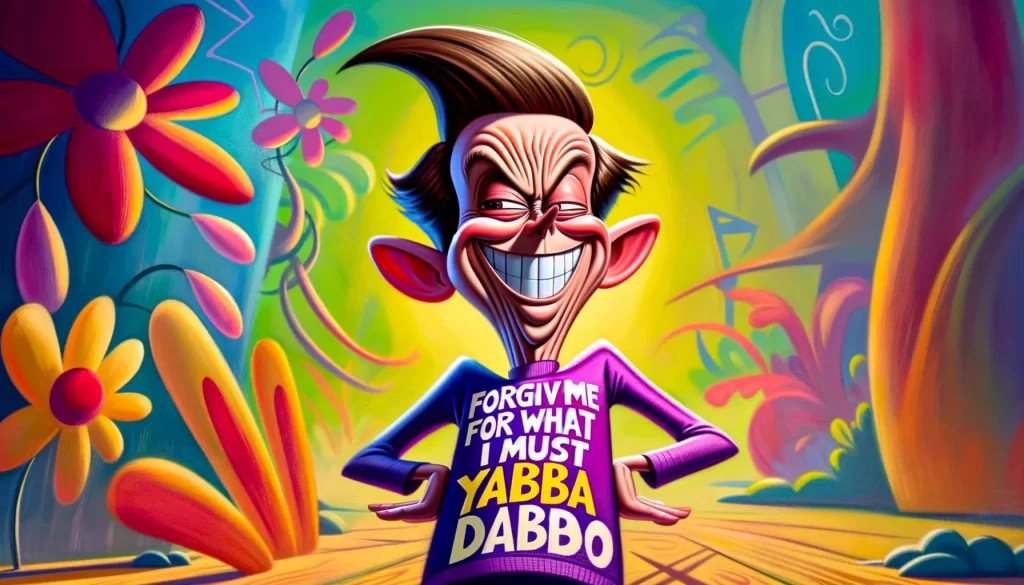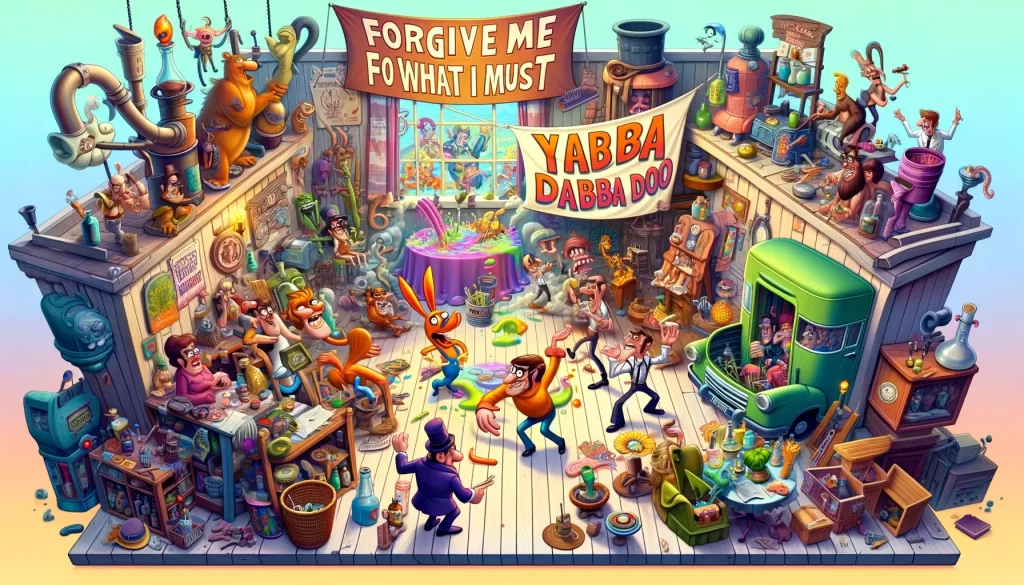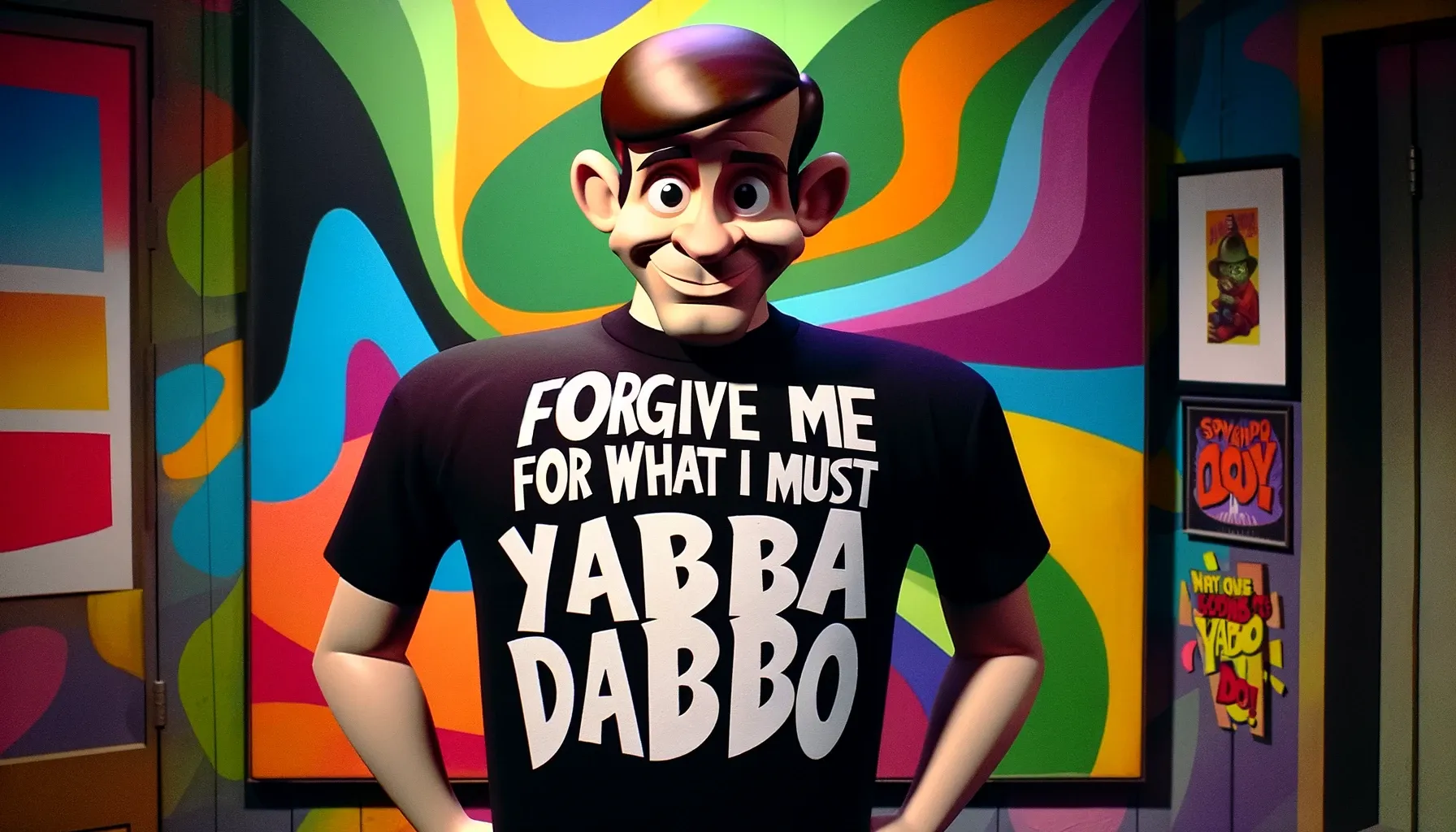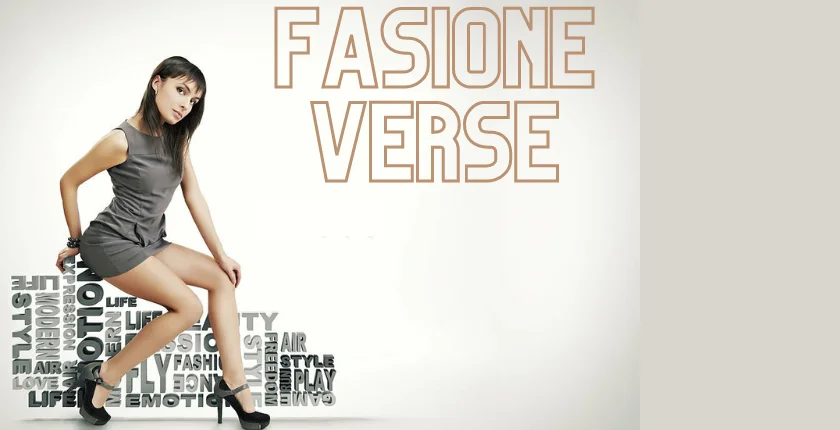Table of Contents
Discover the essence of “Forgive Me for What I Must Yabba Dabba Doo” in this comprehensive guide. Uncover 25 engaging insights, personal experiences, and expert perspectives, all wrapped in 2000 words of informative content. Dive into the intricacies with a positive twist.
Embark on a journey to understand the complexities of “Forgive Me for What I Must Yabba Dabba Doo.” This article unfolds the layers, providing insights, anecdotes, and expert perspectives to demystify this enigmatic phrase. Let’s explore the depths together.
Forgive Me for What I Must Yabba Dabba Doo: A Deeper Dive
Delve into the heart of the matter, exploring the significance and origins of “Forgive Me for What I Must Yabba Dabba Doo.” Uncover the hidden meanings and cultural nuances tied to this intriguing expression.
The Origins of Yabba Dabba Doo
Unearth the roots of “Yabba Dabba Doo” and its cultural impact. From an iconic catchphrase to a symbol of exclamation, understand how this phrase transcended its origins.
The Evolution of Forgiveness
Explore the evolution of forgiveness across cultures and time. From ancient philosophies to modern psychology, discover the multifaceted nature of seeking and granting forgiveness.
Why “Forgive Me” Matters
Delve into the importance of seeking forgiveness and the emotional weight behind the phrase. Uncover the power of vulnerability and accountability in interpersonal relationships.

Navigating Through the Apology Landscape
Navigate the intricacies of apologies and forgiveness, exploring various aspects that contribute to a sincere “Forgive Me for What I Must Yabba Dabba Doo.”
Crafting a Genuine Apology
Learn the art of crafting a sincere apology. Unpack the elements that make an apology meaningful and how they contribute to healing strained relationships.
Receiving Forgiveness: A Two-Way Street
Understand the dynamics of receiving forgiveness. Explore the role of empathy, understanding, and communication in fostering genuine reconciliation. Read also My External Drive Has Chinese Characters.
Forgiveness in the Digital Age
Examine the challenges of seeking forgiveness and expressing remorse in the digital realm. Explore the impact of technology on interpersonal relationships and the nuances of virtual apologies.
The Human Experience: Stories of Forgiveness
Embark on a journey of personal narratives, showcasing real-life experiences of seeking forgiveness and saying “Forgive Me for What I Must Yabba Dabba Doo.”
Redemption Through Forgiveness
Discover stories of redemption and transformation through the act of seeking and granting forgiveness. Explore how individuals have navigated through their mistakes to emerge stronger.
Cultural Perspectives on Forgiveness
Uncover diverse cultural perspectives on forgiveness. From rituals to traditions, explore how different societies approach the concept of seeking and granting forgiveness.
Learning from Mistakes: A Personal Reflection
Share a personal reflection on the author’s journey of seeking forgiveness. Embrace the vulnerability of admitting mistakes and the growth that follows.

People also ask
What’s the meaning of Yabba Dabba Doo?
Yabba Dabba Doo is a nonsensical expression of happiness or excitement popularized by the animated character Fred Flintstone in the 1960s television series The Flintstones. It is believed to be an onomatopoeia, a word that imitates the sound of something, possibly representing Fred’s carefree and joyful attitude.
Why does Fred say yabba dabba doo?
Fred Flintstone’s signature catchphrase, “Yabba Dabba Doo,” serves as an exclamation of joy, excitement, or contentment. It reflects his optimistic and lighthearted nature, embodying the carefree spirit of the prehistoric world depicted in The Flintstones. The phrase’s nonsensical nature adds to its charm and memorability, making it instantly recognizable and synonymous with the character.
Whose catchphrase was yabba dabba doo?
The iconic catchphrase “Yabba Dabba Doo” is exclusively associated with Fred Flintstone, the protagonist of the animated sitcom The Flintstones. His frequent use of this phrase became a defining characteristic of the character, symbolizing his jovial personality and love of life.
Does Scooby Doo say Yabba Dabba Doo?
Scooby-Doo, the beloved canine companion from the Hanna-Barbera cartoon series Scooby-Doo, does not say “Yabba Dabba Doo.” This catchphrase is solely attributed to Fred Flintstone from The Flintstones, a separate Hanna-Barbera production.
What is an interesting fact about The Flintstones?
The Flintstones’ prehistoric setting, with its reliance on animal-powered machinery and primitive technology, was a groundbreaking concept for a television series at the time. This unique setting, combined with the show’s humor and relatable characters, made The Flintstones a cultural phenomenon and a beloved part of television history.
Final Words
As we conclude this exploration, it’s evident that saying “Forgive Me for What I Must Yabba Dabba Doo” goes beyond mere words. It encapsulates the essence of vulnerability, accountability, and the human experience. In a world where forgiveness is both a journey and destination, may this guide serve as a compass, helping you navigate the complexities with empathy and understanding.


